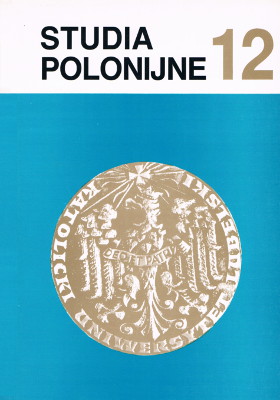O kanadyjskiej polityce wielokulturowości
Main Article Content
Abstrakt
The present paper is devoted to the Canadian policy of multiculturalism: its foundation, experiences from the first decade of its existence and its originality.
Social, demographic and political factors created a foundation for the multicultural policy. It was called into being as the result of a dialogue among the elites of ethnic groups, federal and provincial authorities, and members of the Royal Commission for Bilingualism and Biculturalism. The basic principle of this policy is to create societies of equal chances of developing and expressing the cultural identity by each of the ethnic groups of society. Experiences of the first years of the adoption of this policy point to the fact that in practice it was reduced to promote folklore and thus got the name of „song and dance” policy. It has not, however, contributed to the creation of stable social structures in which the equality of component cultures of social ethnic groups could be expressed. Experiences which were gathered allowed to correct the policy. At present, its main aim is to promote the cooperation of all ethnic groups in order to eliminate different forms of discrimination and to create a symbolic universe, which could express and shape the group identity of society.
The care for the whole and unity of society in the face of different threats is a guiding principle of the policy of multiculturalism. The idea of multiculturalism under Canadian conditions serves to defend the unity and whole of society. This idea could be in full interpreted as the ideology of multiculturalism and become an alternative for the existing anglophone and francophone ideologies. The ideological aspect of the policy of multiculturalism has not been so far fully developed.

